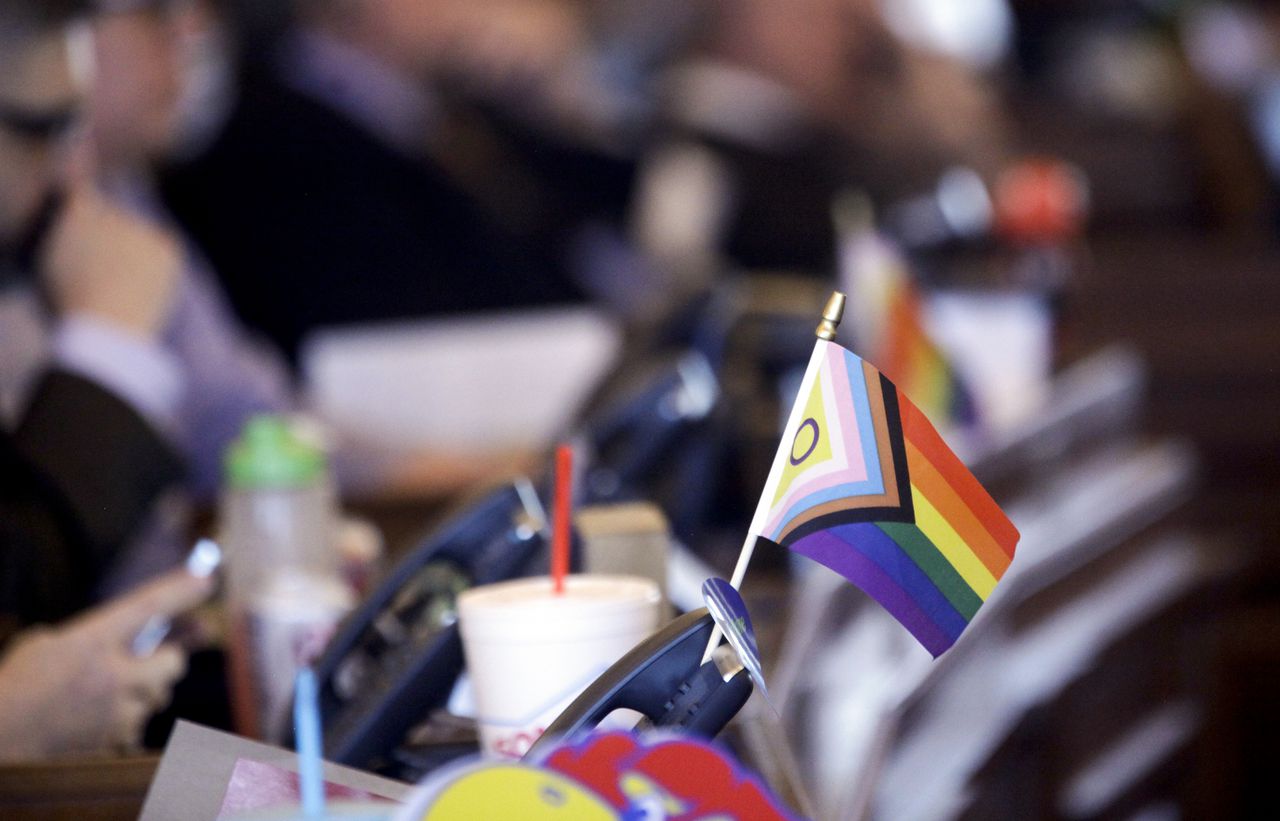Alabama lawmakers want to extend limits on school LGBTQ discussions
Some Alabama Republican lawmakers are trying to increase restrictions on conversations and confidentiality regarding gender identity and sexual orientation for kids from kindergarten to eighth grade in public schools across the state.
HB354, sponsored by Rep. Mack Butler of Rainbow City, states that such conversations would have to be “age and developmentally appropriate,” though those terms are not specified in the bill.
It would also require schools to notify parents if there are any changes “in the student’s services or monitoring relating to the student’s mental, emotional or physical health.” Parents should be notified about health care services available at the start of each year and have the option to opt out, according to the bill.
Butler’s bill awaits review from the House Education Policy Committee. Currently, it is not yet scheduled to appear before the committee.
Similar legislation passed in Alabama during the 2022 legislative session, though it only applied to children fifth grade and younger. The law mirrored language in a recent Florida law, dubbed “Don’t Say Gay” by critics.
The 2022 law came as a surprise amendment on a bill requiring students to use the bathroom that is consistent with the gender on their birth certificate. After it passed, Alabama state superintendent Eric Mackey said teachers would likely need guidance on how to handle classroom discussions if gender identity or sexual orientation came up.
Lawmakers and advocates expressed concern over potential impact, and officials struggled to offer guidance to schools, who often offer a wide variety of mental health services, social services and counseling services to students and families.
LGBTQ advocates reported incidents of teachers being asked to take down Pride flags and students being denied access to bathrooms that aligned with their gender identity.
Last year, Alabama officials have said that if a student changes their birth name or pronouns, schools should honor the student’s wishes.
School faculty also voiced concern that parent complaints could lead to teachers and counselors losing their jobs based on the state’s new law. Critics of the new law have also asked how it will affect sex education, along with instruction about reproductive health and sexual activity.
Butler’s bill would also require local boards of education to obtain parental permission before administering certain health screenings and questionnaires.
The State Board of Education would also be required to define and adopt procedures for notifying parents of changes in a student’s services relating to mental, emotional or physical health. Local boards would be prohibited from enacting contrary practices.
Parents who are concerned about their child’s school in relation to this bill would be instructed to notify the principal. If their concern was not resolved, parents could “seek the appointment of a special magistrate appointed by the State Superintendent of Education to recommend a resolution to the issue or bring a cause of action against the local board of education,” the bill states.
The cost of the special magistrate would be footed by the school district.
Butler’s bill follows requests from judges for some parents to turn over their children’s medical records in a court case, as well as bans forcing trans athletes at both the K-12 and collegiate levels to play on teams that align with the gender on their birth certificate.
Neighboring states Georgia and Florida have pushed for similar classroom bans.
In Florida, a lawmaker also is attempting to ban schools from using pronouns that align with a transgender student’s gender identity.
Butler’s bill must receive a favorable report in committee before it can head back to the House floor for a vote. Rep. Mark Gidley, R-Gadsden, one of the bill’s cosponsors, sits on the 15-member Education Policy Committee, along with Rep. Susan DuBose, R-Hoover, who sponsored the bill forcing transgender athletes to play on teams consistent with the gender listed on their birth certificate.
